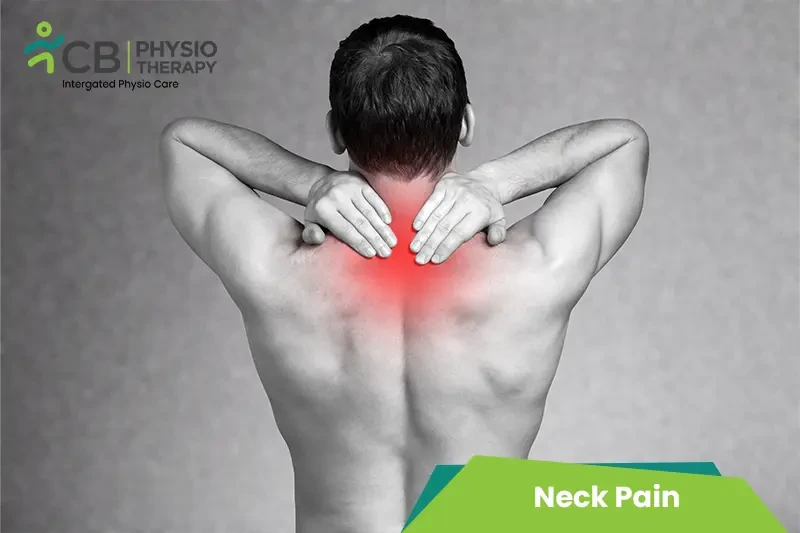
Neck pain, also known as cervicalgia, is a common problem, with two-thirds of the population having neck pain at some point in their lives .Neck pain, although felt in the neck, can be caused by numerous other spinal problems. Neck pain may arise due to muscular tightness in both the neck and upper back, and pinching of the nerves emanating from the cervical vertebrae. Joint disruption in the neck creates pain, as does joint disruption in the upper back. The bones, ligaments, and muscles of your neck support your head and allow for motion. Any abnormalities, inflammation, or injury can cause neck pain or stiffness Many people experience neck pain or stiffness occasionally.
In many cases, it’s due to poor posture or overuse. Sometimes, neck pain is caused by injury from a fall, contact sports, or whiplash .Most of the time, neck pain isn’t a serious condition and can be relieved within a few days. But in some cases, neck pain can indicate serious injury or illness and require a doctor’s care.
· Cervical Spondylosis
· Meningitis
· Spinal stenosis
· Muscle tension and strain
· Whiplash.
· Heart attack
Neck pain can also be a symptom of a heart attack, but it often presents with other symptoms of a heart attack, such as:
· Shortness of breath
· Sweating
· Nausea
· Vomiting
· Arm or jaw pain
Understanding risk factors can help identify high-risk patients and improve their neck pain management. Since older adults usually face both age-related physical and psychosocial issues, comprehensive assessments and treatments are needed to effectively manage neck pain. Some common risk factor considering back pain management are as:
· Age. Neck pain is more common as you get older, starting around age 30 or 40.
· Poor posture. Working at a desk for too long without changing position can often lead to neck pain.
· Diseases. Some types of arthritis and cancer can contribute to neck pain.
· Sudden jerks. Sudden jerks to your neck while doing some exercise can be one the contributing factors for you neck pain.
· Sleeping postures. People having awkward sleeping postures are prone to have a greater risk of back pain.
· Smoking. Smokers have increased rates of neck pain. This may occur because smoking prompts more coughing, which can lead to herniated disks. Smoking can also decrease blood flow to the spine and increase the risk of osteoporosis.
Most neck pain is associated with poor posture combined with age-related wear and tear. To help prevent neck pain, keep your head cantered over your spine. Some simple changes in your daily routine may help. Consider trying to:
· Use good posture. When standing and sitting, be sure your shoulders are in a straight line over your hips and your ears are directly over your shoulders.
· Take frequent breaks. If you travel long distances or work long hours at your computer, get up, move around and stretch your neck and shoulders.
· Adjust your desk, chair and computer so that the monitor is at eye level. Knees should be slightly lower than hips. Use your chair's armrests.
· Avoid tucking the phone between your ear and shoulder when you talk. Use a headset or speakerphone instead.
· If you smoke, quit. Smoking can put you at higher risk of developing neck pain.
· Avoid carrying heavy bags with straps over your shoulder. The weight can strain your neck.
Sleep in a good position. Your head and neck should be aligned with your body. Use a small pillow under your neck. Try sleeping on your back with your thighs elevated on pillows, which will flatten your spinal muscles.
Most neck pain improves gradually with home treatment. If not, see your doctor. Seek immediate care if severe neck pain results from an injury, such as a motor vehicle accident, diving accident or fall. You should also see a doctor if you have:
· severe neck pain without apparent cause
· lump in your neck
· fever
· headache
· swollen glands
· nausea
· vomiting
· Trouble swallowing or breathing
· Weakness
· Numbness
· Tingling
· pain that radiates down your arms or legs
· inability to move your arms or hands
· inability to touch your chin to your chest
You doctor will perform a physical exam and take your complete medical history. Be prepared to tell your doctor about the specifics of your symptoms. You should also let them know about all prescription and over-the-counter (OTC) medications and supplements you’ve been taking. Even if it doesn’t seem related, you should also let your doctor know about any recent injuries or accidents you’ve had. Treatment for neck pain depends on the diagnosis. In addition to a thorough history and physical exam by your doctor, you may also need one or more of the following imaging studies and tests to help your doctor determine the cause of your neck pain:
· Blood tests
· X-rays
· CT scans
· MRI scans
· Electromyography, which allows your doctor to check the health of your muscles and the nerves that control your muscles
· Lumbar puncture (spinal tap)
Depending on the results, your doctor may refer you to a specialist. Treatment for neck pain may include:
· Ice and heat therapy
· Exercise, stretching, and physical therapy
· Pain medication
· Corticosteroid injections
· Muscle relaxants
· Neck collar
· Traction
· Antibiotics if you have an infection
Hospital treatment if a condition such as meningitis or heart attack is the cause surgery, which is rarely necessary
Select your City to find & connect with our experts regarding Physiotherapy for Neck Pain